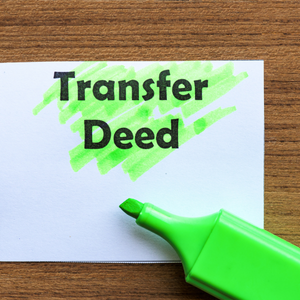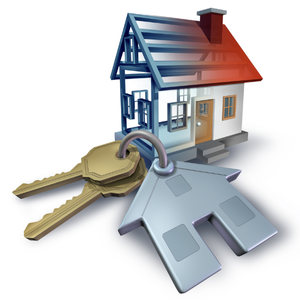
Understanding Inheritance Laws in North Carolina
When you inherit a house in North Carolina, understanding the state’s inheritance laws is crucial to navigating the process smoothly. North Carolina follows specific probate procedures that dictate how inherited property is transferred and managed.
The first step involves determining whether the deceased had a valid will, as this document outlines the distribution of assets according to their wishes. If there is no will, North Carolina’s intestate succession laws come into play, which prioritize distributing assets to surviving spouses and children before considering other relatives.
It’s essential to address any outstanding debts or taxes linked to the estate because these obligations can affect the transfer of ownership. Additionally, heirs should be aware of North Carolina’s estate tax regulations and any potential exemptions that might apply to them.
Understanding these legal intricacies ensures that you comply with all requirements and facilitates a seamless transition of property ownership during such a pivotal time.
For many heirs, selling an inherited property in North Carolina can be a practical option, especially if maintaining the home isn’t feasible or if you want to access its financial value quickly. Working with experienced professionals can simplify this process, from determining a fair market price to handling negotiations and paperwork. Swift Cash House Buyer in North Carolina can help you navigate the sale efficiently, ensuring you maximize your return while staying compliant with all local regulations.
Legal Steps After Inheriting a House in North Carolina
When you inherit a house in North Carolina, navigating the legal steps is crucial to ensure a smooth transition of ownership. First, it’s essential to verify the existence of a valid will by consulting the local probate court.
If the deceased left a will, it must be submitted for probate to legally transfer the property title to you as the heir. In cases where no will exists, North Carolina’s intestate succession laws dictate how the estate is divided among surviving family members.
It’s advisable to engage an experienced estate attorney who can guide you through probate and help address any potential disputes or challenges. Additionally, understanding your responsibilities regarding property taxes and outstanding debts associated with the inherited home is vital.
You may need to obtain an appraisal of the property’s value for tax purposes and determine if selling or renting out the house aligns best with your financial goals. Throughout this process, clear communication with all parties involved and adherence to state-specific regulations can prevent unnecessary complications when inheriting real estate in North Carolina.
How to Transfer Deed Ownership of an Inherited Home
Transferring the inherited home deed ownership in North Carolina is an involved and somewhat complex legal process. In North Carolina, the title to an inherited home, along with the deed, has to go through a legal process to be formally owned. A certified copy of the deceased’s death certificate will be necessary during the settling process of the estate, so obtaining it sooner will help expedite the process.

To start, any will not in the public domain can be used to start estate proceedings and is filed in the local probate court. In the case of a will, the named executor undertakes the estate’s management. If, however, there is no will or no executor, the court assigns an administrator to this task.
It is illegal to leave debts and taxes pertaining to the estate unpaid, so clearing all estate obligations is a must. Once all debts to the estate have been settled, the estate can proceed to fill and file a new deed in that state, usually a quitclaim deed, with the county register of deeds in which the estate is located.
The deed must have true and lawful information of the grantee and grantor to be legally binding and must carry the sign of a notary public. Finally, additional North Carolina real estate regulations and the accompanying filing fees must be adhered to to complete and legalize the deed transfer.
Navigating Property Taxes in an Inherited Home
Upon inheriting a home in North Carolina, a vital part of managing this new home would be understanding property taxes on this new asset. Most importantly, what is the current inherited home assessed value, as this will determine how much property tax you owe?
In North Carolina, property taxes are based on an assessment value determined by the county, which often differs significantly from the market value that is typically higher. You should get in touch with the local tax assessor to make sure you are the real owner and also check for applicable exemptions or deductions.
Should you move and assume the inherited house as your primary domicile, you will be given favorable treatment as a taxpayer, and this will help. Remember, there are certain property tax deadlines you must adhere to, or you will face penalties.
If you decide to do renovations on this inherited property, or if you decide to sell the house in the future, you will more than likely face a reassessment. This will help you understand your tax obligations for property inherited in North Carolina.
Evaluating the Market Value of Your Inherited Property in North Carolina
When you inherit a house in North Carolina, accurately evaluating its market value is an essential step to take. Start by assessing the property’s location, as it significantly influences the home’s worth.
Research recent sales data of comparable homes in the area to understand current market trends. Consider hiring a professional appraiser who can provide an unbiased assessment of the property’s condition and fair market value.
It’s crucial to factor in any unique features or upgrades that could enhance its desirability and subsequently increase its value. Pay attention to the local real estate market dynamics, including supply and demand factors, which can affect property values in North Carolina neighborhoods differently.
Consulting with a real estate specialist familiar with the North Carolina housing market can also offer valuable insights into how much your inherited property might fetch if sold. By thoroughly evaluating these elements, you ensure that you have a clear understanding of your inherited property’s value before making any decisions on selling or renting it out.
If you decide that selling your inherited property is the best option, partnering with trusted professionals can make the process faster and more profitable. Investor home buyers in North Carolina and nearby cities can provide a fair cash offer, helping you avoid lengthy listing processes and unexpected costs. This approach allows heirs to quickly convert the inherited home into cash while ensuring a smooth transaction aligned with the property’s assessed market value.
Financial Considerations for Heirs of Real Estate
When you inherit a house in North Carolina, understanding the financial implications is crucial to making informed decisions about your new asset. First, consider the potential estate taxes that might apply, although North Carolina does not have its own estate tax; federal estate tax laws still may affect you depending on the value of the inherited property and other assets.

Property taxes are another significant consideration, as you will be responsible for these going forward. It’s essential to reassess the property’s current valuation since this will impact your annual property tax obligations.
Additionally, if there is an outstanding mortgage on the inherited house, heirs need to determine whether they wish to assume or refinance it. Maintenance costs and necessary repairs should also be factored into your budget to preserve or increase the property’s market value.
If renting out or selling the property is an option you’re considering, assess the local real estate market in North Carolina for trends and opportunities that could maximize your financial return. Consulting with a financial advisor familiar with North Carolina’s real estate laws can provide valuable insights into managing inherited property effectively while optimizing your financial outcomes. To get personalized guidance, you can contact Swift Cash House Buyer for expert assistance tailored to your situation.
Emotional Aspects of Dealing with a Family Home After Death
The loss of a family member and inheriting a home in North Carolina can be a very emotional experience. Many decisions are hard to approach because a family home can emotionally have value.
The indescribable emotions, like profit, can be shared just by walking through the memorials. Part of the pain is feeling that the value of a property is much more and should never be lost. The demand to hold on to something sentimental conflicts with the high maintenance of the property that serves no practical value to you.
Looking through the family’s attached belongings can bring out the feelings of the family’s deep history. The emotional side does get a bit more strenuous when you have to deal with siblings. Their perspectives in case of the loss can be very biased and indifferent, as they may also have their own opinion on the inherited property.
Balancing the time the family lost and the emotional damage that comes along with the loss can help deal with the expenses and legal work that come along with it to help navigate through the feelings one faces, preserving the practicality of the situations of finances and emotional balance.
Options for Selling an Inherited House Quickly
If you’ve recently inherited a house in North Carolina and are looking to sell it quickly, there are several strategies you can consider. One popular option is selling the property to a cash home buyer, which allows for a fast transaction without the need for repairs or renovations. Working with cash home buyers in Durham, NC, and nearby cities can help streamline this process, providing a fair offer and a faster closing timeline.
This method often results in a quicker closing process compared to traditional real estate sales. Another approach is listing the inherited house with a cash home buyer specializing in quick sales; they can help by setting an attractive price point and effectively marketing the property.
Additionally, hosting an open house or leveraging online real estate platforms can attract potential buyers swiftly. It’s important to consider staging the home to enhance its appeal, as well as addressing any legal paperwork related to inheritance, such as probate processes, which vary in North Carolina.
By understanding these options and acting decisively, you can expedite the sale of your inherited property while navigating any unique regulations associated with North Carolina real estate transactions.
Tax Implications of Selling an Inherited Property
As you inherit a property in a particular location in North Carolina, and you intend to sell the property, it is very important to know the tax consequences of selling the property. If you sell the property, you will owe capital gains tax on the difference between the fair market value, the inherited right value, and the original purchase price.

Tax on capital gains owed may be less on account of the purchase value of the house. If you inherited property and sold it for more than its original value, you owe capital gains tax and estate tax on the difference.
There is also no estate tax for the state of North Carolina, though estate tax may apply for the value of the estate on a federal level. The value of the estate is also important, so monitoring it is a priority. If the estate value is significant, federal monitoring is also important.
Tax experts may use this questionnaire to consider principal aspects in selling property in the state of North Carolina. In addition, they may use the screening technique to classify the type of issues to approximate tax and capital gain on the estate.
Common Mistakes to Avoid When Managing an Inherited Home
In North Carolina, managing an inherited home can lead to financial and legal issues, especially if careless mistakes are made. In these situations, an error that can have serious consequences is not determining a home’s value and potential prior to making any decisions.
By not doing a professional appraisal, a person is at risk of either losing money or having to pay excess cash from their pocket that is not warranted. And an even bigger mistake is to postpone any repairs or maintenance and not fix any issues, if they arise, to avoid depreciating the home value.
In a similar fashion, plenty of heirs neglect to realize the burden of the estate tax and the tax liabilities to the inheritance that they may have. In contrast, disregarding the rules of the North Carolina Homeowners Association, or any zoning regulations, can lead to serious penalties when, for instance, they are trying to sell or rent the place out.
Sentimentality is often the default answer to an emotionally charged decision. It is undeniable that inherited homes often lead to a person’s attachment, and not to ruin any relations, these emotional decisions need to be made with care. For the most part, heirs need to optimize the channels of communication with any other remaining beneficiaries, and even though lawyers are not the most liked decision-makers these days, if the estate needs to be settled, estate lawyers can make it easier to resolve any disputes that arise from having different sets of expectations or misunderstanding ownership and the legal responsibilities that it entails.
How Do I Avoid Paying Capital Gains Tax on Inherited Property in North Carolina?
If you get a house as an inheritance in North Carolina, it would be smart to know how to potentially manage capital gains tax avoidance in this case. And one way to manage capital gains tax on inherited property is to make use of the “step-up in basis” law.
This law allows for the basis of the property to be set to the fair market value of the property on the date the decedent died, which can help get rid of or significantly reduce capital gains if the property is sold in the future. And it would be useful to consider the tax advantages of renting or personally residing in the property as well, as this may defer tax and provide extra economic advantages.
For instance, a professional estate and tax advisor planner in North Carolina would be better suited to provide additional value by minimizing your tax liabilities while still paying close attention to the regulations on taxes set by the federal and state governments. They may also help with the investment property sale tax in a way that optimally avoids capital gains using a 1031 exchange.
If you analyze your situation and tax professionally, you can help make the future avoidance of capital gains tax a pleasant situation.
What would you like to do with the inheritance property?
In North Carolina, having a house adds to both fortune and burden. The first thing on the agenda that we need from you is to check the current physical condition of the house and do a thorough assessment to understand its needs, repairs, and maintenance.
After this, you would need to get an attorney who specializes in estate planning to make sure the legal ramifications of changing the title to your name are correctly followed.
And do not forget to check the outstanding mortgage or any other legal financial responsibilities to ensure your position to keep or sell the house is not in any way jeopardized. What do you think the house would classify as a primary residence or a secondary income? Or something you want to rest in during holidays? My last statement to you would be to keep in mind the taxation in North Carolina, as well as the inheritance tax on the estate of the deceased, to evade undue burden.
If selling is the best option, find a local real estate pro in North Carolina to get the best price on the property. By this point, it is clear that inheriting a house is a multi-faceted issue in terms of legalities, finances, and personal considerations that needs all of the attention and focus a person can give in order to make the right choices for the important piece of property.
I inherited a house and am wondering what to do next. Whether you want to sell quickly, skip costly repairs, or enjoy a hassle-free process, Swift Cash House Buyer can help. We provide fair cash offers, manage all the paperwork, and make the sale seamless. Have questions or ready to get started? Call us at (610) 590-9845 for a no-obligation offer today!
Helpful North Carolina Blog Articles

| HEIRSHIP | INHERITED WEALTH | TAXATION | TESTAMENTARY TRUSTS | LAST WILL AND TESTAMENT | DEVISEE |
| WILL AND TESTAMENT | TESTAMENTARY | PROBATING | OWNERSHIP INTEREST | FORCED SALE | PARTITION |
| PARTITION BY ALLOTMENT | WITHOUT A WILL | WITHOUT A VALID WILL | INTESTATE SHARE | INTESTATE PROPERTY | NORTH CAROLINIANS |
| ATTORNEYS | LAWYER | LIENHOLDER | ESTATE ADMINISTRATION | CLERK OF COURT | CLERKS OF COURT |
| TITLE SEARCH | CHARLOTTE, NC | CHARLOTTE | CHARLOTTE, NORTH CAROLINA | WEALTH | LEGAL TITLE |
| LEASING | LEASE | LESSEE | COMPANY | BENEFICIARY | MONEY |
| AFFIDAVIT | TRUSTEE | PROBATE JUDGE | FIDUCIARIES | FIDUCIARY | GRANDCHILDREN |
| TENANCY IN COMMON | GIFT | RECONVEYANCE | INVESTORS | INVESTING | |
| INSURANCE POLICY | INSURANCE POLICIES | INFORMATION | BANK ACCOUNTS | BANK | U.S. |
| THE UNITED STATES | REAL ESTATE SPECULATORS | MARRIAGE | LIFE INSURANCE | LIABILITY | JUDGE |
| GUARANTEES | REAL ESTATE AND |
